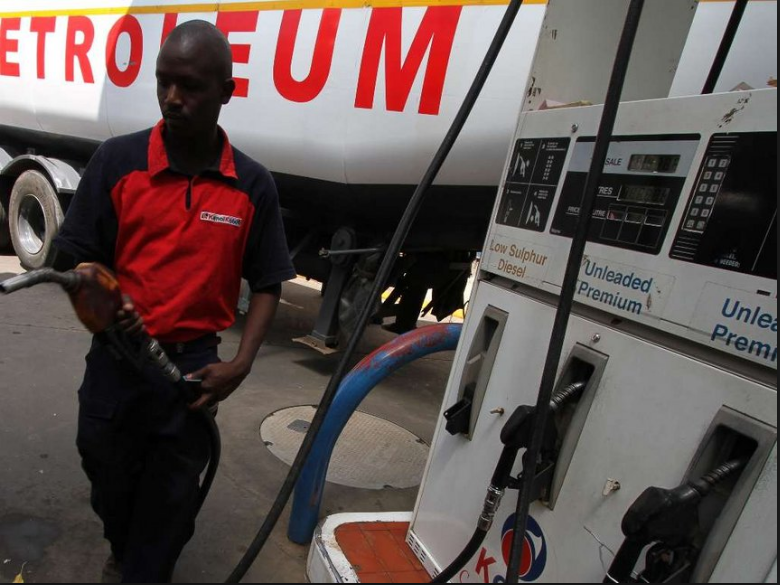
Kenyan lawmakers back plan to cut tax on petro products in half

Kenya’s parliament accepted by acclamation a suggestion by President Uhuru Kenyatta’s move to reduce a new value added tax on fuel to 8 percent from 16 percent before loud protests by lawmakers who opposed the move forced the chair of the session to call for a vote to be taken.
In a televised special sitting of the house, members protested while standing and chanting “zero, zero”, leading the MP chairing the session to call for a formal vote.
The tax is part of a government bid to finance key priorities prudently while narrowing a fiscal deficit that the Treasury forecasts at 5.9 percent of economic output this year.
Legislators must approve the new value added tax proposal before Kenyatta can sign this financial year’s budget into law.
But while the VAT cut on petrol will ease some of the pain felt at the gas pump, new proposed tax hikes on mobile money transfers, kerosene and other goods and services will likely make life worse for low income families.
On Wednesday, public outrage and disaffection greeted President Kenyatta’s fresh tax proposals.
“The cost of living will go up significantly,” Consumers Federation of Kenya (Cofek) secretary-general Stephen Mutoro said.
“The implications are dire for consumers,” Mr Mutoro said, adding that the President was relying on “wrong advisers”.
Economic analyst Aly-Khan Satchu said the new taxes would cripple ordinary Kenyans.
“The cost of living increases are falling hardest on ordinary Kenyans. In fact, the ordinary Kenyan has been finding themselves worse off practically every year,” Mr Khan said.
“I would have preferred for the VAT to have remained at 16 percent because it was a democratic tax and everyone pays it defined by usage. I am now alarmed that our tax and spend model has run out of road.”






